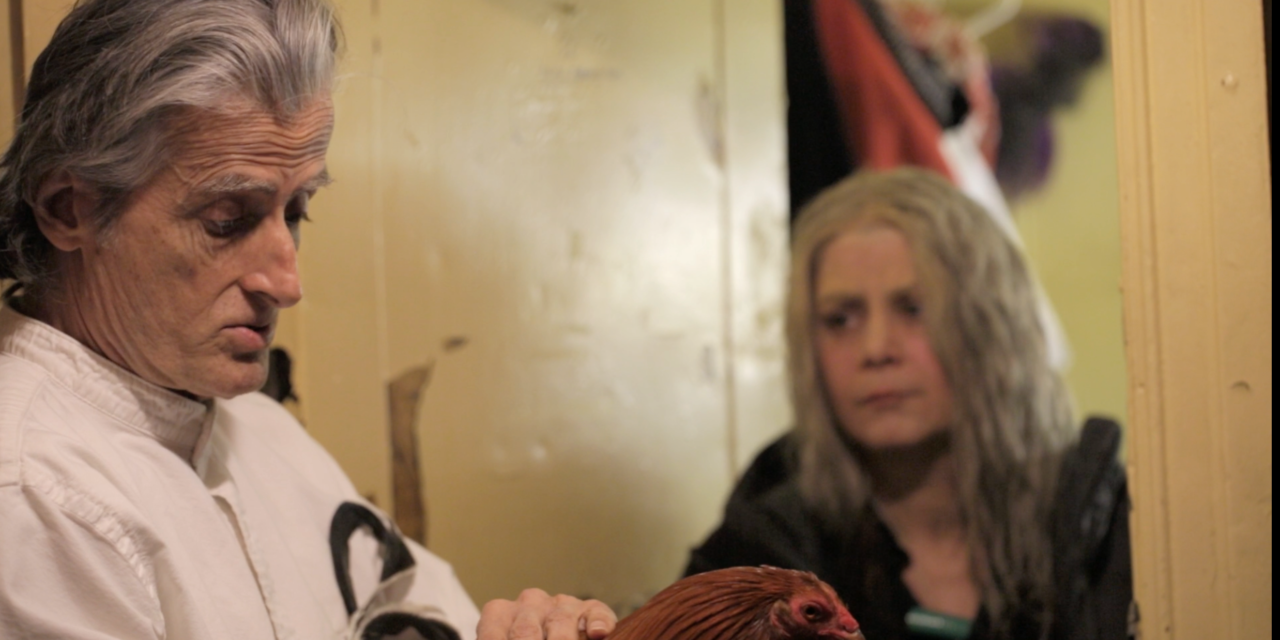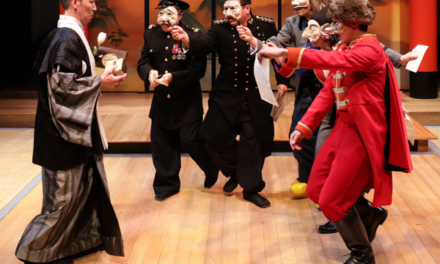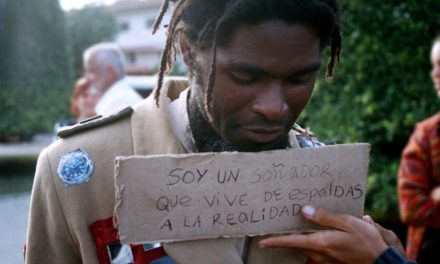Creating riveting theater out of the problem of a bureaucratic oversight is no easy feat. Luckily for the audiences of El Coronel No Tiene Quien Le Escriba/No One Writes To The Colonel, part of Repertorio Español at Harlem Stage, we have Gabriel Garcia Marquez, the master of plot and pacing, to provide the blueprint.
No One Writes To The Colonel is a one-act play directed by Jorge Alí Triana with a script by himself and Verónica Triana based on Garcia Marquez’ novel of the same name. It’s presented in Spanish with supertitles in English and Spanish (although I found the Spanish text unnecessary and distracting; it’s hard enough for the actors to compete with the text for English-speakers’ attention). The sparse set, consisting of little more than a table and chairs and a small clock, evokes the impoverishment of the characters even before any dialogue occurs, as in Gorky’s Lower Depths. The one visual extravagance onstage is also at the heart of the conflict: a beautiful live rooster.
The rooster is the last living thing connecting the colonel (Sebastian Ospina) and his indomitable wife (Zulema Clares, the only woman in the show and the strongest performer), neither of whom have names, to their late son. The couple relies on the rooster, not only for this tie to their severed past but also because they believe that his eventual victory in the cockfighting ring will finally bring in the money they need to survive. But in the meantime, he’s a source of tension. Who should get to eat, the man and woman, or the rooster? It’s a fight between past, present, and future, being waged in their stomachs.
The company had considerable trouble depicting the emotional and historical complexity of the story. Literature can get away with ambiguity, or the reader can linger on the page until they figure out what’s going on. But for a theater audience, especially the one at Harlem Stage which seemed to largely consist of high schoolers on a field trip, a bit more context would have been appreciated. What was the insurrection that the colonel and his friends were whispering about, why were they living under martial law, what war-torn country was this and what year? It was hard to get a foothold. As it was, the audience responded to the emotional story-line. The teenagers giggled whenever the colonel showed his wife any tenderness, and I shed a tear when they considered selling the rooster, their past and future, to be able to eat in the present. As it is, the play recommends itself as a supplemental text, for students reading the novella for example or learning about Colombia’s Thousand Days’ War.
That being said, Repertorio Español, which is now in its fiftieth year, is a supremely important initiative. It performs the dual task of representing the Spanish-speaking community which makes up such an important part of the New York landscape and making Hispanic theater accessible to all. The cast of No One Writes To The Colonel featured actors from Spain, Dominican Republic, Puerto Rico and more sites of the Spanish diaspora/post-colonial space, which includes Harlem. It’s marvelous when theater can transport us across time and space and, at the same time, remind us exactly where we are. Talk about magical realism.
This post was written by the author in their personal capacity.The opinions expressed in this article are the author’s own and do not reflect the view of The Theatre Times, their staff or collaborators.
This post was written by Abigail Weil.
The views expressed here belong to the author and do not necessarily reflect our views and opinions.


















